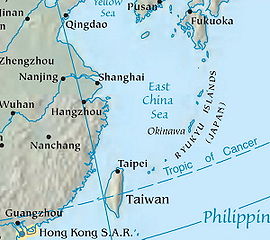Good news! Philippine Vice-President Jejomar "Jojo" Binay is correct, his views similar to that of Speaker Feliciano "Sonny" Belmonte, Jr. on the urgent need for reforming the restrictive economic provisions of the Philippine Constitution which have so far discouraged huge inflows of foreign investments.
Image below of Vice-President Jojo Binay, sourced from affordablecebu.com

Image below of Speaker Sonny Belmonte, sourced from en.wikipedia.com

Vice-President Binay voiced these progressive, pro-people and reformist views to media at the sidelines of a meeting of the Employers Confederation of the Philippines (ECOP), the Makati Business Club (MBC) and the Management Association of the Philippines (MAP).
Let all of us citizens voice our support for these proposed reforms, which shall hopefully make our Philippine economy globally-competitive compared to our Asean and Asian neighbors!
We need more foreign direct investments (FDIs) for more new factories and big enterprises, so we can create more jobs in the Philippines, instead of restricting entry of foreign investments which causes our perennially high unemployment problem and which forces millions of hardworking Filipnos to go abroad for work.
Image below of Metro Manila, sourced from business.asiaone.com

Image below, sourced from maquilafind.com

I am sharing this latest news report from philstar.com and Xinhua News Agency:
Image below of Vice-President Jojo Binay, sourced from affordablecebu.com
Image below of Speaker Sonny Belmonte, sourced from en.wikipedia.com
Vice-President Binay voiced these progressive, pro-people and reformist views to media at the sidelines of a meeting of the Employers Confederation of the Philippines (ECOP), the Makati Business Club (MBC) and the Management Association of the Philippines (MAP).
Let all of us citizens voice our support for these proposed reforms, which shall hopefully make our Philippine economy globally-competitive compared to our Asean and Asian neighbors!
We need more foreign direct investments (FDIs) for more new factories and big enterprises, so we can create more jobs in the Philippines, instead of restricting entry of foreign investments which causes our perennially high unemployment problem and which forces millions of hardworking Filipnos to go abroad for work.
Image below of Metro Manila, sourced from business.asiaone.com
Image below, sourced from maquilafind.com
I am sharing this latest news report from philstar.com and Xinhua News Agency:
Binay calls for revisit of restrictive policies to economic growth
MANILA, Philippines (Xinhua) - Vice President Jejomar Binay today called for a revisit of the Southeast Asian country's restrictive policies that hinders economic growth.
At the sidelines of the Joint Membership Meeting of the Employers Confederation of the Philippines, the Makati Business Club and the Management Association of the Philippines, Binay underscored the need to liberalize laws with economic provisions in pursuance of the government mantra of inclusive growth.
"I have taken the position that we should at least, for starters, revisit measures that gets in the way of inclusive growth. We can start with the economic provisions of the constitution," he told reporters during the regular forum of businessmen.
He added that the required legislative changes are not imperative on President Aquino's term but would certainly need the push of national government.
"Though it the fastest route, let me express my concern that the Congress itself may insert provisions that are not of economic orientation at all. That is as scenario that I am truly afraid might happen," he said.
He also expressed concern that alleged path to liberalization should be able to prepare Philippine businesses and the economy for global competitiveness.
The group of businessmen is seeking for an amendment of the economic provisions in the constitution to allow the entry of more foreign direct investments and a leeway for small and medium scale enterprises (SMEs) to grow and develop.
The group is apprehensive over the seeming reluctance of foreign companies to invest in the Philippines despite improved credit and investments ratings.
Businessmen are citing inconsistencies on policies and "disrespect of contracts" as several of the more obvious reasons for slow investments.
At the sidelines of the Joint Membership Meeting of the Employers Confederation of the Philippines, the Makati Business Club and the Management Association of the Philippines, Binay underscored the need to liberalize laws with economic provisions in pursuance of the government mantra of inclusive growth.
"I have taken the position that we should at least, for starters, revisit measures that gets in the way of inclusive growth. We can start with the economic provisions of the constitution," he told reporters during the regular forum of businessmen.
He added that the required legislative changes are not imperative on President Aquino's term but would certainly need the push of national government.
"Though it the fastest route, let me express my concern that the Congress itself may insert provisions that are not of economic orientation at all. That is as scenario that I am truly afraid might happen," he said.
He also expressed concern that alleged path to liberalization should be able to prepare Philippine businesses and the economy for global competitiveness.
Earlier, a group of local businessmen also urged the national government to soften the restrictive policies under the nationalistic provisions of the constitution.
The group of businessmen is seeking for an amendment of the economic provisions in the constitution to allow the entry of more foreign direct investments and a leeway for small and medium scale enterprises (SMEs) to grow and develop.
The group is apprehensive over the seeming reluctance of foreign companies to invest in the Philippines despite improved credit and investments ratings.
Businessmen are citing inconsistencies on policies and "disrespect of contracts" as several of the more obvious reasons for slow investments.



